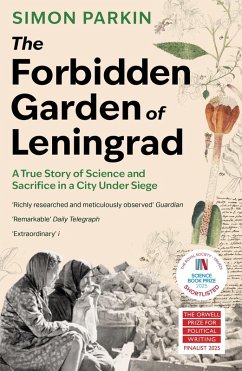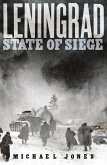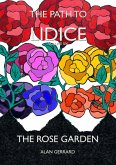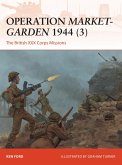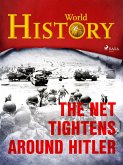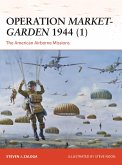*An Economist Book of the Year*
'An astonishing story brilliantly told . . . It is as moving as it is gripping to read'
Jonathan Dimbleby, author of Endgame: 1944
'A richly researched and meticulously observed account of a little-explored corner of 20th-century history'
Guardian
'A fantastically well-researched history of science and sacrifice saturated in drama'
i
In the summer of 1941, German troops surrounded the Russian city of Leningrad - now St Petersburg - and began the longest blockade in recorded history. By the most conservative estimates, the siege would claim the lives of three-quarters of a million people. Most died of starvation.
At the centre of the embattled city stood a converted palace that housed the greatest living plant library ever amassed - the world's first seed bank. After attempts to evacuate the collection failed, and as supplies dwindled, the scientists responsible faced a terrible decision: should they distribute the specimens to the starving population, or preserve them in the hope that they held the key to ending global famine?
Drawing on previously unseen sources, The Forbidden Garden tells the remarkable and moving story of the botanists who remained at the Plant Institute during the darkest days of the siege, risking their lives in the name of science.
'A compelling account . . . a remarkable work of literary exhumation. The first full account of the Plant Institute in any language, it's a fitting testimony to an extraordinary project and the bravery of the ordinary individuals who kept it going'
Telegraph
'A beautifully-written account of one of the most extraordinary and little-known episodes of the Second World War -- a scientific feat and act of collective self-sacrifice the consequences of which continue to be felt today'
Adam Higginbotham, author of Challenger
'A gripping, original and important story of courage and science in wartime'
Roland Philipps, author of A Spy Named Orphan
Dieser Download kann aus rechtlichen Gründen nur mit Rechnungsadresse in A, B, BG, CY, CZ, D, DK, EW, E, FIN, F, GR, HR, H, IRL, I, LT, L, LR, M, NL, PL, P, R, S, SLO, SK ausgeliefert werden.

